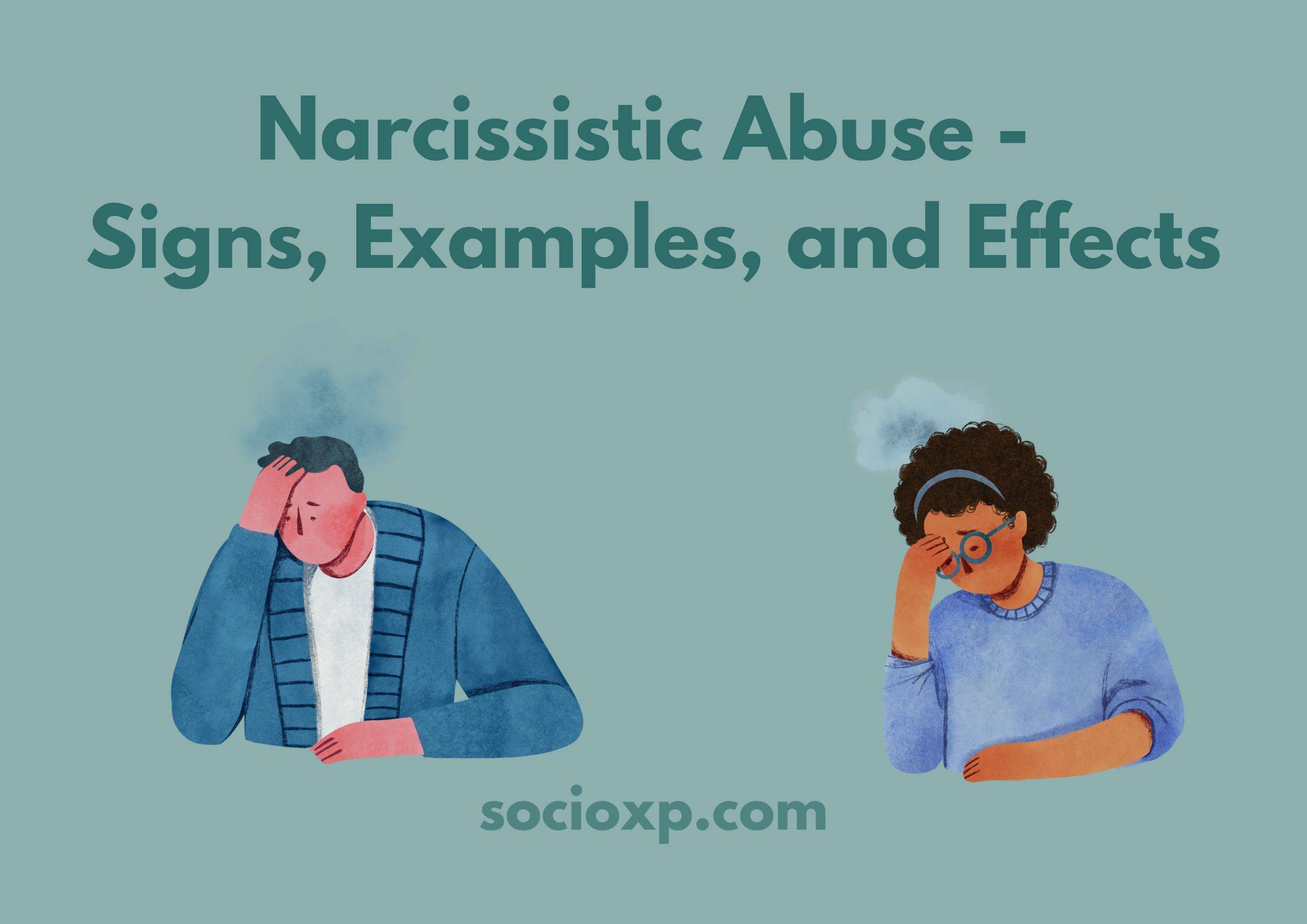Actual Difference Between Misogynists and Narcissists (Are Male Narcissists Also Misogynists?)
What is the actual difference between Misogynists and Narcissists? Misogynists and narcissists are two different types of people with different sets of conducts, attitudes, and frames of mind. Although spotting differences can be made easier by knowing the meaning of both terms in-depth, clearing the clouds of confusion, and attaining clarity on the topic, “Spotting the actual difference between Misogynists and Narcissists and also knowing more about the question, “Are Male Narcissists Also Misogynists?”

It is often heard or noted that people get confused and simply tag narcissists as misogynists and vice versa as they have a misconception or lack of proper acknowledgment regarding both terms or their differences. Though there are a few overlaps in the behavioral patterns, attitudes, and mind frames of misogynists and narcissists, but knowing them as distinctive personality traits might be a proper way to approach the topic. Let us dive into the topic by knowing more about misogynists and narcissists in detail.
Understanding Misogynists
Misogynists are people who have a deep-rooted hatred toward women. Misogynists may either choose to express their opinion about hating women openly or would hide and yet have the same feelings towards women and not the voice to express them. They believe that women are inferior to men and often express negativity toward the entire female community. They have negative attitudes and opinions of females. Misogynists may also engage in behavior that may depreciate, trivialize, and undignify women. They discriminate so hard against women building prejudices with hollow projections. Misogynists do not trust women.
Misogynists hold generalized views of women, considering them as weak, emotional, and inferior.

Defining Misogyny
Misogyny is a term that is associated with displaying dislike, biased prejudices, and discrimination toward women. It refers to a deep-rooted hatred for women. The term comes from the Greek words “Misos” meaning hatred and “Gune” meaning women, and it was first introduced or used in English around the 17th century. Another word for misogyny is Sexism.
Misogyny is often expressed through derogatory language toward women, along with demeaning actions and views of them. Sometimes it also involves violence. Misogyny is not limited to and exhibited by males only, in a few cases, it can also be exhibited by females too. Misogyny can be internalized, meaning that women themselves may adopt misogynistic behavior, beliefs, and attitude toward their own gender.
In reference to history, Misogyny has been prevalent for a long period and also to date. It is responsible for the ongoing discrimination between males and females, violence against women, and the prolonged gender inequality. It is a commonly found behavioral tactic that indicates a person who behaves negatively towards women. It can be found in our culture, the negative or improper ways that women are often portrayed in media and popular culture. To fight against gender inequality and promote gender equity, increase awareness about the negative impacts of misogyny, and maintain a balance between genders; addressing misogyny and sexist attitude, behaviors and conducts becomes crucial.
The misogyny that is in every culture is not a true part of the human condition. It is life out of balance, and that imbalance is sucking something out of the soul of every man and woman who’s confronted with it.
– Joss Whedon
How do Mysoginists manifest their hatred towards females?
Misogyny has been prevalent throughout history and unfortunately is still a prevalent problem even today. Some misogynists may hold these beliefs because of their upbringing, some past experiences (which may be negative) with women, societal conditioning, or simply because of some prohibitions and prenotions regarding women.
Misogynistic beliefs may take any form from overt and aggressive acts of violence towards women to subtle forms of belittling women with the help of a negative attitude, dismissing women’s opinions, mocking them, making fun of their beliefs, and their ideas, downgrading their entire existence and having complete disagreements with women making them feel trivial.

How to spot a Misogynist?
Some common signs to spot a misogynist are,
- They view women as inferior or weak.
- They hardly pay any attention to what a woman has to say.
- They hardly agree with any ideas presented by women.
- They hardly take any concerns presented by women seriously.
- They do not support women at all and may also vouch against women’s empowerment as they are highly discriminative and prefer a male dominant world.
- They constantly have the desire to control, order, and dominate a woman around them.
- Their relationships are very biased and have prejudices against other partners.
- They often view women as objects and believe that their entire existence is just to used for sexual gratification.
- They also believe that women should be submissive or compliant to the men they associate with.
Feminism is hated because women are hated. Anti-feminism is a direct expression of misogyny; it is the political defense of women hating.
– Andrea Dworkin
Causes of Misogyny
Trauma – Some men might have faced or have/had experienced abuse or neglect from women either in the past or while growing up. This pent-up negativity towards women may lead to misogyny.
Societal Norms and Beliefs – Growing up in a male dominant society that views men as superior to women can have a consequential impact on one’s perception toward females.
Individual Upbringing – Misogyny in men may also stem from childhood experiences, such as a lack of positive female role models or experiences of abuse by female figures.
Gender Role Expectations – Some men believe that women should confine to their traditional gender roles like being submissive to men, taking care of their children, cooking, and maintaining the households, etc.
Sexual Frustration – Misogyny might stem from a rejection from women or non-acceptance by a woman for sexual desires.
Insecurity – In some cases, misogyny could be a result of fear of losing power or control over/to women.
Understanding Narcissism
Characterized by a grandiose sense of self-importance, a need for admiration, and a lack of empathy, narcissism is a personality disorder that affects approximately 1% of the population. Narcissists are often difficult to deal with because they have an inflated sense of self-worth that permeates every aspect of their lives. They may feel entitled, arrogant, and self-centered, and their behavior can be highly unpredictable, causing chaos and dysfunction in personal and professional relationships.
Narcissistic Personality Disorder is a mental health condition, where the patient has extremely high admiration for themselves, including boosted self-esteem, self-centeredness, high self-worth, boosted ego, and a low tolerance for criticism, emotions, and attachments.
Narcissistic Personality Disorder is characterized by a lack of empathy for others, a grandiose sense of self-importance, and an immoderate need for admiration. Narcissists often believe that they are entitled to special treatment, and they tend to exploit others to fulfill their needs. The disorder typically develops in early adulthood and can persist throughout a person’s life. While Narcissistic Personality Disorder (NPD) is notoriously difficult to treat, it is essential to address the disorder as early as possible to prevent those affected from inflicting emotional harm on themselves and others.

It is a mental health condition that is characterized by an extensive pattern of grandiosity, a constant need for validation, admiration, and appreciation, and a lack of considerateness. People suffering from Narcissistic Personality Disorder have a boosted self-importance, ego, and an urge to constantly exploit for their own good.
Symptoms or Signs of Narcissistic Personality Disorder
These traits may differ from one individual to another, but these are some of the generalized behavioral patterns that can be commonly associated with almost many narcissists in general,
Self-Centeredness – Narcissists often prioritize their interests, needs, and benefits above others.
Manipulativeness – Narcissists can be skilled at manipulating others to what they want.
Lack of Empathy – Narcissists may have difficulty understanding or caring about the feelings of others.
Grandiosity – Narcissists often have an inflated sense of self-importance and may exaggerate their accomplishments or talents.
Lack of Accountability – Narcissists may resist taking responsibility for their actions which may be an impediment to others, yet they would blame someone else for their mistakes and never take accountability for their actions.
Need for Admiration – Narcissists always yearn for constant praise, admiration, attention, and appreciation.
Entitlement – Narcissists believe that they are entitled to special treatment and privileges.
Arrogance – Narcissists have a haughty attitude and a belief that they are superior to others.
Exploitative Behavior – Narcicits do not think twice before manipulating someone and use them for their own gain.
Envy – Narcissists may become envious of other people’s success, wealth, or qualities/talents.
Individuals with Narcissistic Personality Disorder also tend to have difficulty handling criticism or feedback that well as they consider feedback or criticisms as opposing their perceptions. Pointing fingers at a narcissist or blaming them might give a rise to their anger, resentment, intense desire for retaliation, or blame shifting.
How to spot Narcissists? – Behavioral Traits of Narcissists
Some behavioral traits of narcissists are as follows,
- They use manipulation in all situations where they feel they are losing the grip
- They always see the negatives first
- They are selfish and inconsiderate
- Narcissists lack sensitivity and empathy.
- Have uncommon expectations and unusual fantasies
- You are always the wrongdoer and not them in their eyes
- They are almost incapable of praising others or giving enough credit to others
- They act over dramatically over trivial matters
- There is no winning against them in an argument
- They are highly competitive even with someone who is incomparable
- They cheat innumerable
- Have unhealthy relationships.
- Have regular mood swings.
- They use bygone grudges as their trump card
- They never provide straight answers

Causes of Narcissistic Personality Disorder
There are a few factors that contribute to developing this mental health disorder which include genetic, environmental, and psychological factors.
Genetic Factors – Narcissism has a genetic component that runs in families. It is like a legacy that is passed down in families. People with a family history of Narcissistic Disorder are more likely to develop this disorder.
Cultural and societal Factors – Certain cultures and societal factors promote such traits and behavioral styles among the dominant gender or some pre-dominant notions of society. This can lead to people following such rigid and unhealthy norms of society.
Childhood Experiences – Traumatic childhood experiences, such as abuse, manipulation, or neglect can contribute to the development of NPD.
Parenting Styles – An overly controlling, aggressive, or abusive parenting style can lead to the development of narcissistic traits in children.

Actual Difference Between Misogynists and Narcissists
| Point of Difference | Misogynists | Narcissists |
| Empathy | Misogynists lack empathy for women | Narcissists lack empathy for everyone except for their own self |
| Control | Misogynists use manipulation and abusive tactics to establish control over women | Narcissists use manipulation and abusive tactics with almost everyone to maintain control of their own lives |
| Focus | Misogynists solely focus on hating women. Misogynists are hostile around women, disregard them, and are biased toward them | Narcissists are solely focused on themselves disregarding everyone else’s needs, desires, and wishes |
| Objectification | Misogynists objectify women, view and treat them in an inferior manner, disrespect them, and have hatred toward women | Not only women, but narcissists also objectify everyone else around them as a means to obtain admiration, validation, and attention. |
| Intimate Relationships | Misogynist men often have trouble building healthy relationships with women | Narcissists struggle to maintain healthy relationships with anyone they associate with and with those who are unable to provide them with a narcissistic supply |
| Self-esteem | Misogynists bolster their own self-esteem by humiliating and belittling women | Narcissists view themselves as superior to others and have a sense of entitlement along with seeking constant validation from others |
Are Male Narcissists also Misogynists?
While some male narcissists might also be misogynists, the two terms yet are not interchangeable. Narcissists often view themselves as superior to others including women in general and may also treat them as objects for their own appeasement. However, this does not necessarily mean that they hold actual hatred toward women.
Narcissists may also have unsuccessful, toxic, and unhealthy relationships with women, which may be considered negative attributes, yet that does not necessarily mean that they hate women as a whole. They have troubled relationships not because they hate women but because of their own toxic and unhealthy perceptions of dating and maintaining relationships. Narcissists only view women through their own lens which only includes how they can benefit the maximum from the women and satisfy their own ego and sense of self-importance.
It is also important to make a note of the statement that “not all misogynists are narcissists“. Also “Misogyny and Narcissism are two differently perceptible personality traits that have a few similar symptoms and behavioral tactics, yet are completely different.” Misogyny may stem from various sources such as cultural or societal conditioning, past trauma, or personal beliefs. While narcissistic traits may contribute to misogynistic traits and attitudes, they are not the sole causes.
Inferences
Misogyny and Narcissism are two differently perceptible concepts, although they may share some similarities in terms of traits, behavior, and perceptions. Misogyny refers to a deep-rooted hatred or a dislike for women, while narcissism is a personality disorder characterized by an inflated sense of self-importance and lack of empathy for others.
While some male narcissists might also hold misogynistic attitudes, it is not a given that they are misogynists. It becomes very important here to understand the differences between these two terms to recognize and address the specific issues related to both these personality traits.
Also, both Misogyny and Narcissism can be harmful and damaging to whoever gets associated with them and also to communities as a whole. So it is crucial to acknowledge, engage and make changes to combat these.
- How To Make A Narcissist Discard You And Leave You Alone? - March 21, 2024
- Narcissistic Supply: 9 Signs You May Be Someone’s Narcissistic Supply - March 11, 2024
- Narcissistic Abuse And Anxiety – 11 Symptoms of Narcissistic abuse-induced anxiety - March 9, 2024


